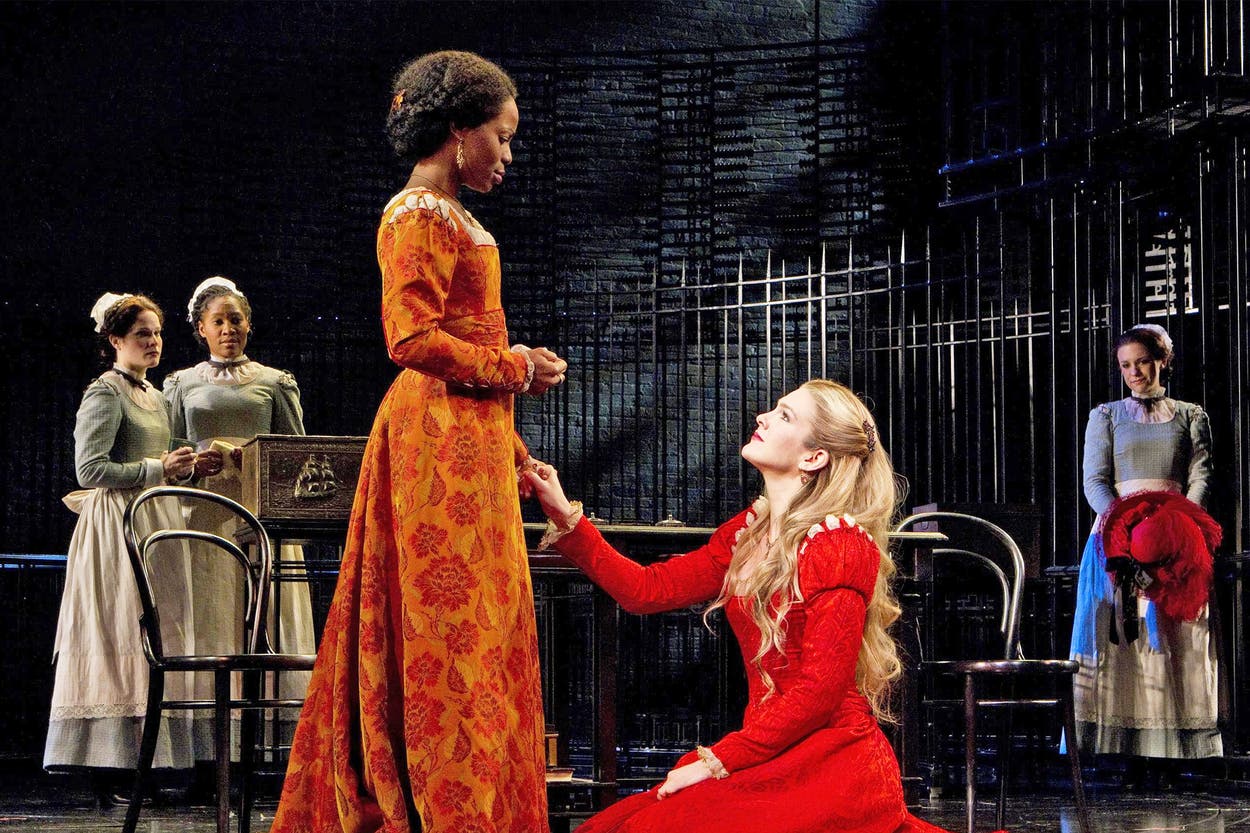Duplicitous Nature
in Shakespeare’s “The Merchant of Venice”
I hold the world but as the world, Gratiano,
A stage where every man must play a part,
And mine a sad one.
(Antonio, Act 1 Scene 1)
 Source for photo: Here
Source for photo: HereShylock, a victim or a villain? Women, empowered or suffused? Is the bond of friendship more powerful than love? Hazard or destiny? Human law or divine justice? Money or Love? Venice and Belmont.
Two Settings
“Venice: the thriving hub of international trade, inhabited by those involved in the cut and thrust of business and commerce. // Belmont: an imaginary setting, a civilised and romantic place, home to the gracious Portia” (Source: Oxford School Shakespeare, “The Merchant of Venice,” 2006)
Money?
In Act I of Shakespeare’s “The Merchant of Venice, “ fortune, which in Shakespeare may mean “luck” as well as “wealth,”grants Antonio a victory by rendering him “Vailing (mast-lowering) Andrew” (Spanish galleon from Cádiz captured by the British). Antonio introduces a debate at stake between material wealth and “ventures not only in one bottom “trusted.”
Fortune / Free Will / Fate / Hazard
Solanio sways from the material to the more elated explanation of presupposing love as the cause of Antonio’s “sadness” or “haziness.” Antonio's continued denial unravels deeper, while Solanio contemplates the immutable truth that our essence is shaped by the cards of fate dealt by nature." ”Nature had fram’d strange fellows in her time; “ Hazard (used in its etymological sense as "randomness") and fate contest to pull characters in divergent paths of understanding.
The choice of caskets is another good example of how hazard, destiny and free will mesh with each other. Portia cannot choose whom to marry, it is only one of the gold, silver, and lead caskets chosen by one of her suitors that will decide her destiny as commanded by her father. Yet, this choice has been contrived by him.
Friendship or Love?
As the play unfolds, Antonio places high stakes on his friendship with Bassanio by offering to accept a contract with Shylock bidding his own life as commodity, a pound of flesh will be cut if he fails to “forteit the bond.”
Equally, friendship surpasses love when Bassanio is ready to dispose of the betrohal ring that Portia offers him as token of their love in exchange for Portia’s services, disguised as a lawyer, in defense of his friend, Antonio. In the amorous subplots, bonds and betrayals ensue. Jessica will be ready to reject his father, and his religion for the love of Lorenzo.
Villain?
In spite of his merciless cruelty upon Antonio, Shylock is also presented as a tragic figure: he is dispossessed of dignity, mocked at, and derided. His claiming for mercy speech turns the balance between villain or victim:
I am a Jew. Hath
not a Jew eyes? hath not a Jew hands, organs,
dimensions, senses, affections, passions? fed with
the same food, hurt with the same weapons, subject
to the same diseases, healed by the same means,
warmed and cooled by the same winter and summer, as
a Christian is? If you prick us, do we not bleed?
if you tickle us, do we not laugh? if you poison
us, do we not die? and if you wrong us, shall we not
revenge? (Act 3, scene 1, lines 53 and following)
Women empowered or suffused?
Portia crowns Bassanio lord of her house and heart when radonmness has led him to choose the lead casket, the one that contains the portrait of Portia and the one that will grant him her hand.
Myself and what is mine to you and yours
Is now converted: but now I was the lord
Of this fair mansion, master of my servants,
Queen o’er myself: and even now, but now,
This house, these servants and this same myself
Are yours, my lord. (Act 3, scene 2, lines 165 and following)
Yet, Portia will not relinquish her position of power, “lord of her house,” and disguised as a “lawyer,” she will administer justice to settle the case between Antonio and Shylock. Possible inferences about Elizabeth the Queen might actually be embodied in the character of Portia.
Women trespass the boundaries allotted to them as daughters (Jessica), home-ridden partners as well as the natural barrier between daylight and night time when they rove streets. Women in Shakespeare’s time were played by boys: this double transvestism, boys dressed as women, who dressed as boys remains puzzling as to the role women played in Shakespeare’s works.


